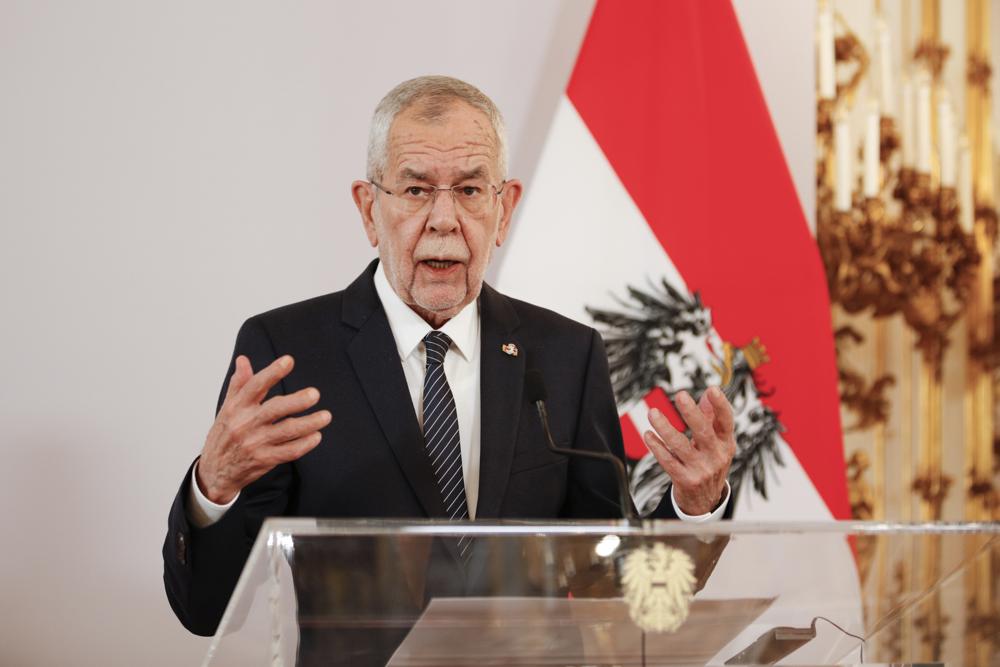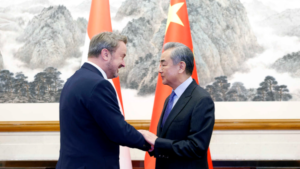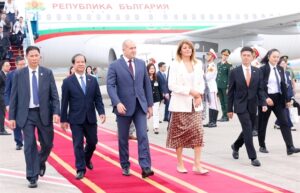President of Austria likely to be re-elected as ‘safe’ choice

President of Austria Alexander Van der Bellen likely to be re-elected as ‘safe’ choice.
Vienna, The Gulf Observer: President of Austria Alexander Van der Bellen, who held office through a period of domestic political instability, a global pandemic and the ongoing war in Ukraine, has campaigned for reelection by pitching himself as the stable option in unstable times.
Voters are widely expected to hand Van der Bellen a second term. The main question is whether his victory will come when the country holds the first round of its presidential election on Sunday or if the election will go to a second-round runoff.
Campaign posters in recent weeks featured the incumbent occupant of Vienna’s Hofburg presidential palace with a red-white-red background representing the colors of the Austrian flag and the slogan “The Safe Choice in Stormy Times.”
Van der Bellen, who previously belonged to The Greens but is running as an independent, is one of seven candidates vying for the presidency. He has the implicit or explicit backing of most major parties in Austria, which is partly why his reelection is so likely.
The Greens, the Social Democrats and the liberal Neos have endorsed him, and the conservative People’s Party declined to field a challenger. Of the five parties represented in the Austrian Parliament, only the far-right Freedom Party opted to run a candidate against him its former parliamentary leader Walter Rosenkranz, a lawyer.
Other candidates on the ballot include the left-leaning, satirical Beer Party’s Dominik Wlazny, known as Marco Pogo, as well as a handful of right-wing and conspiracy-minded candidates, such as Michael Brunner of the anti-coronavirus party People Freedom Fundamental Rights and Gerald Grosz, a former leader of the now-defunct, far-right party Alliance for the Future of Austria.
Austrian presidents are elected for six-year terms and serve as the country’s head of state. Although the position on paper holds significant authority, including to sign off on legislation, dismiss government ministers and to dissolve the parliament and call for new elections, the powers are rarely used.
Van der Bellen must receive 50% of the vote to avoid a runoff election in November. Opinion polling has consistently put him above that mark in recent weeks.
Peter Hajek, head of the Vienna-based polling firm Public Opinion Strategies, said the most recent polls put Van der Bellen’s support well above 50%, meaning that he will likely reach that threshold even if there is low voter turnout.
Van der Bellen was first elected president in 2016 in a closely watched race between him and the Freedom Party’s Norbert Hofer. That year, the same one that produced the Brexit vote in the United Kingdom and Donald Trump’s election in the United States, Austria could have elected its first far-right head of state since World War II.
This year, the Freedom Party has capitalized on inflation and rising energy prices to make modest poll gains in recent months. But it’s been unable to pose the kind of strong challenge to Van der Bellen that Hofer did six years ago.
Early election projections should be available shortly after the polls close at 5 p.m. (3 p.m. GMT) Sunday.


